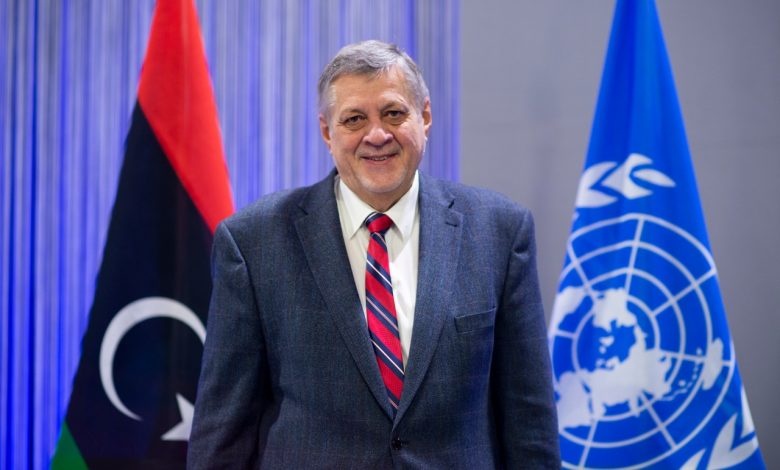The UN envoy to Libya talks about the difficulty for the country to overcome the current crisis, Details

The UN envoy to Libya, Abdoulaye Bathily, has confirmed that there are deep differences on how Libya can overcome the current crisis.
During his first briefing to the Security Council on Libya, Bathily explained that he had decided to give priority to consultations with the actors in Libya, and stressed that the situation in Libya requires the re-establishment of legitimacy by consensus, stressing the need to organize elections in the country.
“There are profound differences on how Libya has overcome the current crisis,” Bataili said, referring to his meeting with parliamentary, state, presidential, two heads of government, Khalifa Haftar and Chief of Staff Mohammed al-Haddad.
Bathily said the security track needs to be strengthened because of the political stalemate in Libya, and that the violent unrest in August in Tripoli deepened the crisis in the city.
Bathily added that he would hold a meeting between the presidents of the House of Representatives and the State to finalize their declaration in the Rabat Agreement, and that he would promote consultations with actors to achieve the required objective of elections.
Bathily said he will mobilize the international community to ensure coordination in support of a solution in Libya, and that the situation in Libya requires a re-establishment of legitimacy, but it must be established on the basis of genuine political will.
He confirmed that the Joint Military Committee (5+5) agreed to meet under the auspices of the United Nations in Sirte next Thursday to discuss the ceasefire agreement, noting that it encourages efforts to unify the military institution in Libya.
Bathily stressed that the human rights situation remained a matter of concern and called on the Libyan authorities to take action.
The efforts were welcomed by the United States on Tuesday, in a tweet by US special envoy to Libya Richard Norland, posted by the Washington embassy in Tripoli on its Twitter account.
He noted that those in power in Libya do not want to leave, and Bathily must listen to the Libyan people and their constituents to build perceptions and proposals.
“We warmly welcome the pledge by the Special Envoy (Batlle) to the UN Secretary-General to build a national consensus to move forward with preparations for the elections, as well as his intention to revive the security track,” Norland said.
Since last March, two governments have been fighting in Libya; One is headed by Bashagha and assigned by the Council of Representatives. The other is the Government of National Unity headed by Abdul Hamid Dbeibeh, who refuses to hand over power except to a government assigned by a new elected parliament.
“Efforts to resolve the remaining outstanding issues related to the constitutional base of the elections do not seem to be aimed at concrete action by the relevant actors, further delaying the prospects for inclusive, free and fair elections to end the transition and restore the legitimacy of institutions,” the UN envoy said.
Following their meeting in Morocco last Thursday, Saleh and al-Mishri announced that they reached an agreement on “implementing a change in sovereign positions in the coming weeks, but not later than the end of the year.”
The meeting with Saleh and al-Mishri aims to agree on political, constitutional, legal and security measures to move forward with preparations for the elections, in line with the aspirations of the Libyan people, Bathily said.
U.N.-sponsored efforts to achieve a Libyan consensus on a constitutional basis for parliamentary and presidential elections, which Libyans hope will lead to a transfer of power and an end to an armed conflict that has plagued their oil-rich country for years, have stalled in the past.












